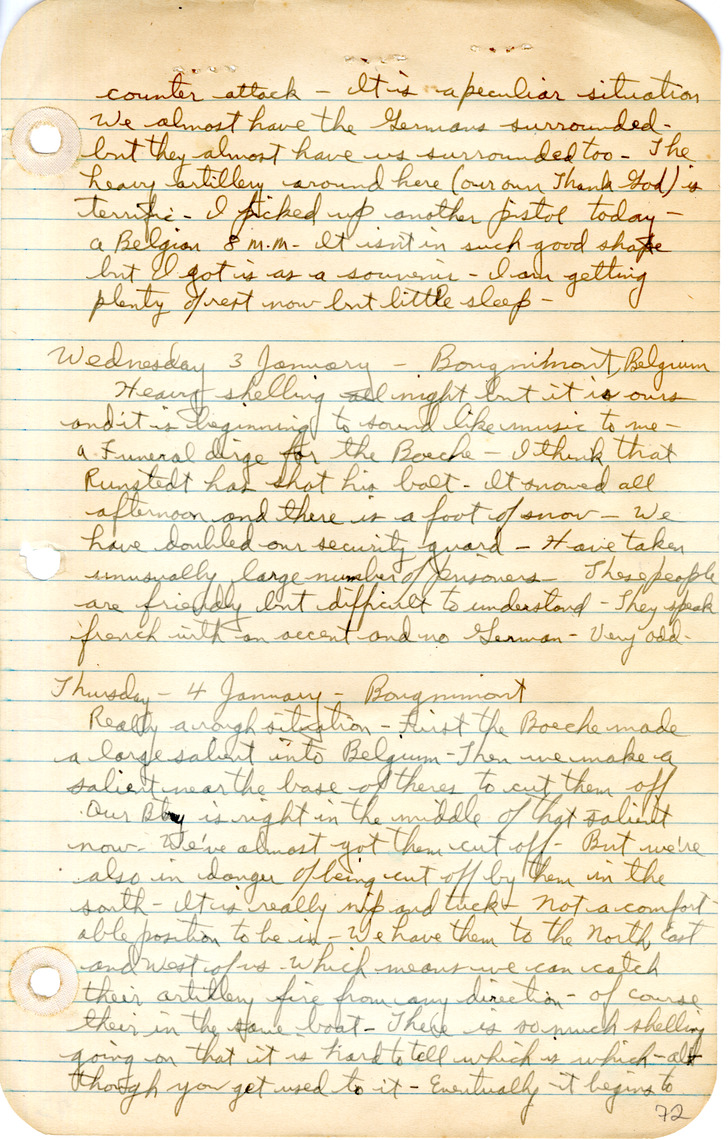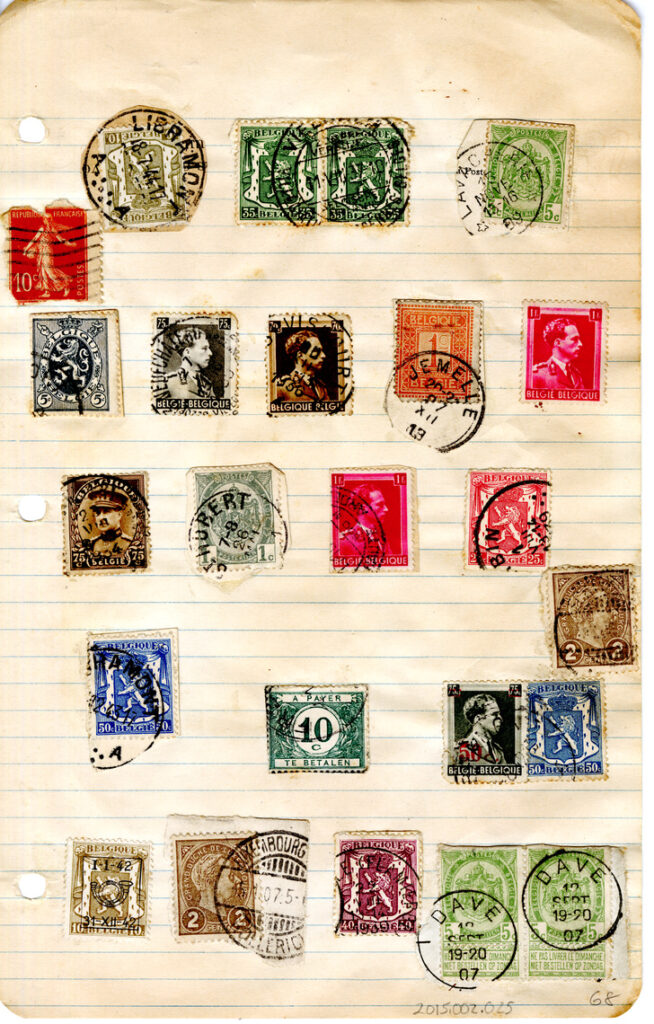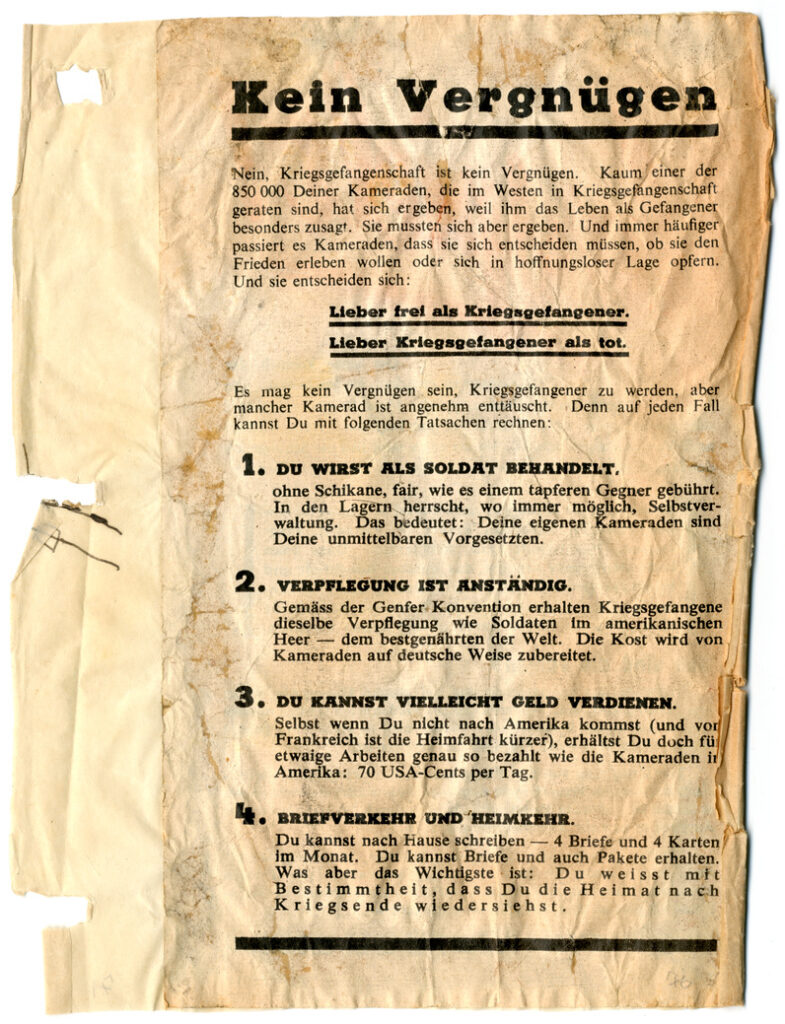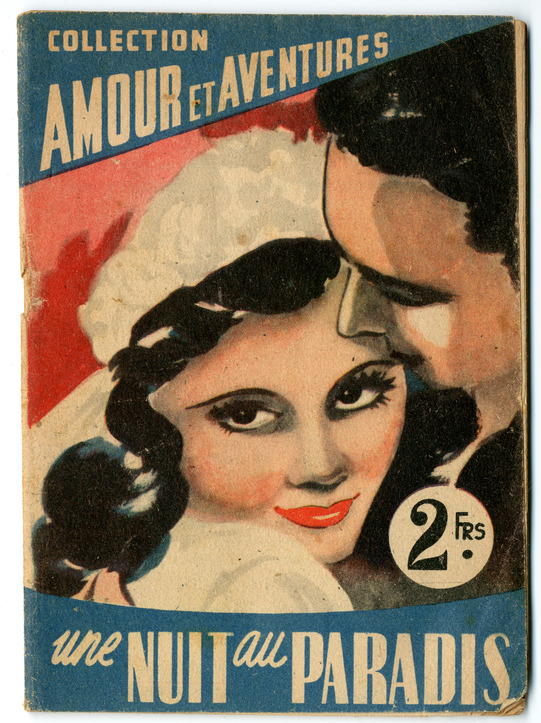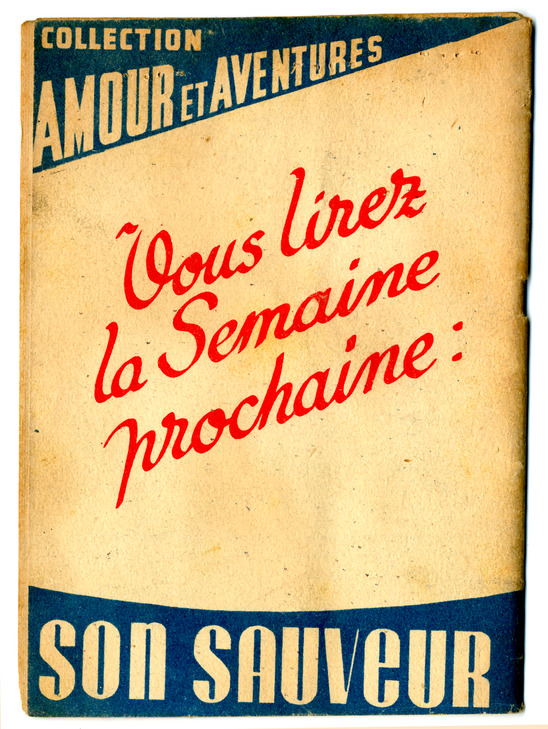[Continued from previous page] counter attack. It is a peculiar situation. We almost have the Germans surrounded, but they almost have us surrounded too. The heavy artillery around here (our own Thank God) is terrific. I picked up another pistol today. A Belgian 8 mm. It isn’t in such good shape but I got it as a souvenir. I am getting plenty of rest now but little sleep.
Wednesday, 3 January [1945] Bougnimont, Belgium
Heavy shelling all night but it is ours and it is beginning to sound like music to me, a Funeral dirge for the Boeche.1 Boeche/ Boche: a derogatory slang word to refer to a German soldier. I think that Runstedt has shot his bolt.2Field Marshal Gerd von Runstedt (1875-1953) was the commander of German forces during the Battle of the Bulge. Atkinson, The Guns at Last Light, p. 394. It snowed all afternoon and there is a foot of snow. We have doubled our security guard. Have taken an unusually large number of prisoners. These people are friendly but difficult to understand. They speak french with an accent and no German. Very odd.
Thursday, 4 January [1945] Bougnimont, [Belgium]
Really a rough situation. First the Boeche made a large salient into Belgium. Then we make a salient near the base of theirs to cut them off. Our Btry is right in the middle of that salient now. We’ve almost got them cut off. But we’re also in danger of being cut off by them in the south. It was really nip and tuck. Not a comfortable position to be in. We have them to the North, East, and West of us, which means we can catch their artillery fire from every direction. Of course they’re in the same boat. There is so much shelling going on that it is hard to tell which is which, although you get used to it. Eventually it begins to [continued on next page]
